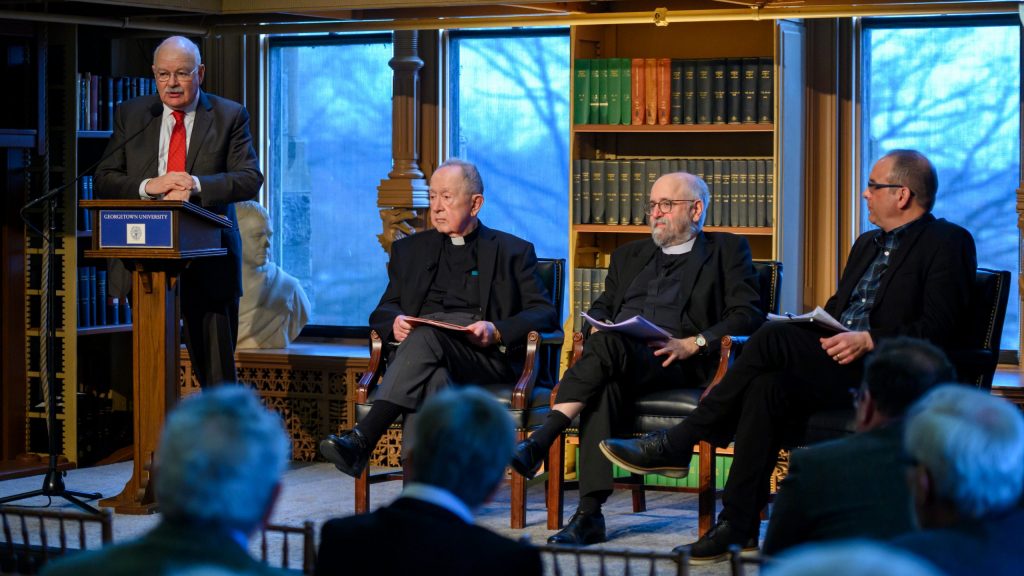In 1830, John Henry Newman, then a 29-year-old tutor at the University of Oxford, described himself in a letter to his close friend, John William Bowden, as "a dull, staid Tory, unfit for these smart times."
"Which way is the world marching?" he added. "And how we shall be left behind when the movement is ordered by the word of command?"
Long after his death, now-St. John Henry Newman's ideas found the world marching to them.
At the time of the letter, he was an Anglican priest. He joined the Catholic Church 15 years after that letter and in 1847 became a Catholic priest. He was named rector of the Catholic University of Ireland in 1854, was made a cardinal in 1879, and in 1965, 75 years after his death, was identified by St. Paul VI as having been an influence on the Second Vatican Council. He was beatified by Pope Benedict XVI in 2010, and made a saint by Pope Francis Oct. 13, 2019.
He left a significant legacy for a broad-based university education and a substantial Catholic education. While not in the contemporary sense a liberal, he did contribute the "liberal" to learning that challenged students rather than forcing them into rote-learning from books.
Speakers at a Feb. 25 celebration of his life and writings at Georgetown University sometimes struggled with applying St. John Henry Newman's 19th century words to 21st-century higher education.
"For Newman," said the Rev. Mark Chapman, a professor of the history of modern theology at Oxford, "the theology of the past ... was intimately connected to the political order of the present," and "the church and the university were inseparable."
"Newman regarded collegiate education as analogous to a kind of monasticism," and eventually parted ways with Oxford because he saw his role as "distinctly pastoral," writing, "I consider to the tutor at Oxford to be a guardian of souls," added Rev. Chapman, who is an Anglican priest.
Oxford at the time and for centuries had been a place where the role of the tutor "was to hand down the Anglican ethos" as it prepared men for the ministry.
St. John Henry Newman, however, believed in "a cultivation of the intellect. A university that was little more than a test of knowledge could never hope to produce moral improvement in the students."
There's still a Newman lesson for today, Chapman observed: "A failure to educate people in the truth will have dire consequences for the future of humanity."
Jesuit Father Patrick R. O'Malley, an English professor at Georgetown with an expertise in 19th-century British literature and culture, phrased that more bluntly: "He holds up this obligation (to educate) people who have some sense of human decency and concern for the common good. They're in short supply in public life."
But the saint, like other educators of his time, can't be evenly applied to current times, Father O'Malley said: "Religious thinkers in the 19th century did not trust critical thinking."
The goal of higher education over which St. John Henry Newman presided, Father O'Malley pointed out, was to produce "a certain kind of person, which Newman described as a gentleman," with then-Cardinal Newman stressing "a commitment to public service -- commitment to the public good."
Earlier forms of university education were not concerned with the advancement of knowledge, but taught "received wisdom. That kind of "liberal" education "was essentially a literate education."
One of St. John Henry Newman's innovations was to add theology to the curriculum. He instilled "a set of values that still undergird universities today."

